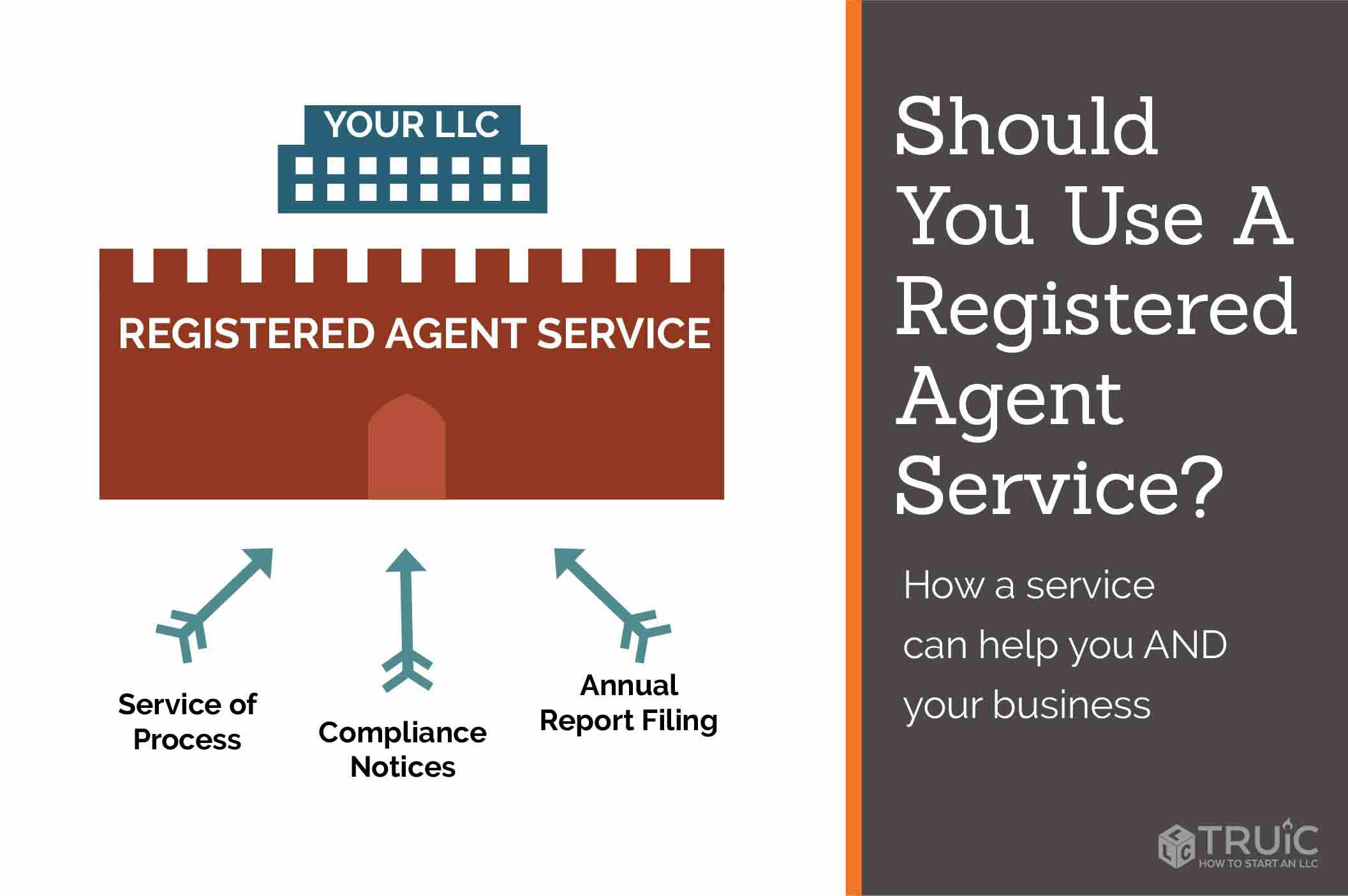How to Become the Registered Agent of Your Business
If you meet the basic criteria to be a registered agent, you can become one by listing yourself in your company’s formation documents or by filing for a registered agent change with the state.
In this article, we will explain who can be a registered agent and how to become one. We will also go over the pros and cons of being your own registered agent or hiring a registered agent service.

Skip Ahead To:
Need a Registered Agent For Your Business?
Recommended: Registered agent services offer a number of benefits. To explore your options, check out our Best Registered Agent Services review.
Who Can Be a Registered Agent?
A registered agent is an individual or entity that has been appointed by a limited liability company (LLC) or corporation to receive service of process, government correspondence, and compliance documents on behalf of the business.
Anyone can be a registered agent if they meet the criteria. Although the criteria varies from state to state, in general, a registered agent must:
- Be 18 years old or older
- Have a physical address in the state where the business is formed (i.e., not just a P.O. box)
- Be available (in person) during normal business hours (i.e., Monday through Friday, 8 a.m. to 5 p.m.)
Learn about registered agents in your state:
- Alabama
- Alaska
- Arizona
- Arkansas
- California
- Colorado
- Connecticut
- Delaware
- Florida
- Georgia
- Hawaii
- Idaho
- Illinois
- Indiana
- Iowa
- Kansas
- Kentucky
- Louisiana
- Maine
- Maryland
- Massachusetts
- Michigan
- Minnesota
- Mississippi
- Missouri
- Montana
- Nebraska
- Nevada
- New Hampshire
- New Jersey
- New Mexico
- New York
- North Carolina
- North Dakota
- Ohio
- Oklahoma
- Oregon
- Pennsylvania
- Rhode Island
- South Carolina
- South Dakota
- Tennessee
- Texas
- Utah
- Vermont
- Virginia
- Washington
- Washington D.C.
- West Virginia
- Wisconsin
- Wyoming
How to Become the Registered Agent of Your Business
To become the registered agent of your business, you have to designate yourself as such in your company’s formation documents or on a form required by the state to change registered agents.
Do I Have to Designate a Registered Agent?
Most states require you to designate a registered agent for your LLC, partnership, or corporation when forming your business. After choosing your business structure, you will be expected to add a registered agent and/or registered office when you file the Articles of Organization with the Secretary of State or an equivalent government agency.
Why Should I Be My Own Registered Agent?
To be your own registered agent, you have to be willing to receive official mail on behalf of your business during regular business hours. This can include, for example:
- Tax forms
- Legal documents
- Official government correspondence (i.e., annual report)
- Summons (service of process), such as notice of a lawsuit
What Are the Advantages of Being My Own Registered Agent?
The primary advantage of being your own registered agent is avoiding the fees that registered agent services charge. However, these fees often include state filing fees, which you will have to pay anyway if you act as your own registered agent.
What Are the Disadvantages of Being My Own Registered Agent?
Although you can be your own registered agent if you meet the above criteria, you may not want to be. That’s partly because although it will save you a few hundred dollars a year, it will require time that you could spend on business development.
There are other hidden costs associated with being your own registered agent. In particular, you might miss a court summons, other important government documents, or filing deadlines, which could result in fines or even a court judgment against you.
Benefits of Hiring a Registered Agent Service
There are several advantages to hiring a registered agent service, including legal compliance, peace of mind, flexibility, and privacy. Our Should I Use a Registered Agent Service guide offers more information to help you make the right choice for your business.
Legal Compliance
A registered agent service will help your business maintain effective corporate compliance by informing you of legal notices or sending annual report filing reminders. A registered agent essentially acts as a gatekeeper for business entities, allowing you to act on issues that come up in a timely fashion.
Peace of Mind
Hiring a registered agent service provides peace of mind because you know that official government documents are being received and handled properly.
Flexibility
If you act as your own registered agent, you have to be available during normal business hours. Hiring a service allows you to keep your own hours and focus on your business.
Privacy
By hiring a registered agent service, you keep your home address private if you work out of your home. Additionally, you avoid being served with a lawsuit or other sensitive documents in front of customers or employees if you work in a separate office from your registered agent.
Frequently Asked Questions
Yes. Every US state requires all corporations, limited liability companies (LLCs), and partnerships to have a registered agent. A registered agent may be called different names in different states, such as a resident agent, a statutory agent, or an agent for service of process.
Yes, you can be your own registered agent so long as you:
- Are 18 years or older
- Have a physical address in your state of business
- Are always available during normal business hours to receive service of process in person
You must decide if it’s best for you and your business to hire a registered agent service. While registered agent services are convenient and can reduce the amount of paperwork you must keep track of yourself, they also are an additional expense. Weigh the pros and cons to determine the best option for you.


